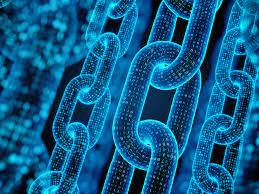Description

Disclaimer: Copyright infringement not intended.
Context
- Russia’s war on Ukraine is bringing on the arrival of the “splinternet.”
What is the splinternet?
- The splinternet (also referred to as cyber-balkanization or internet balkanization) is a characterization of the Internet as splintering and dividing due to various factors, such as technology, commerce, politics, nationalism, religion, and divergent national interests.
- In this internet is controlled by autonomous political blocs or any other controlling power—such as tech or e-commerce companies, or countries with diverging national interests tied to nationalism or religion.
- Clyde Wayne Crews, a researcher at the Cato Institute, coined the term “splinternet” in 2001 to describe "parallel internets that would be run as distinct, private, and autonomous universes."
More details
- In its original form, the internet transcended borders and allowed people unfettered access to virtually everything, while the splinternet limits citizens’ access to data, forces businesses to keep data within borders, and even changes how they operate within a state.
- Splinternet is often defined as the balkanization of the net, as nations try to preserve their sovereign identities and economic interests.
- A fusion of the words “split" and “internet", the splinternet is a fragmented version of the world wide web with national identities.
- The reasons for this ‘split’ include global politics, national security, religion and more.
Examples
- The Chinese government erected the "Great Firewall" for political reasons, and Russia has enacted the Sovereign Internet Law that allows it to partition itself from the rest of the Internet.
- US and Australia, discuss plans to create a similar firewall to block child pornography or weapon-making instructions.
- Russia has accelerated domestic online censorship amid Russia-Ukraine crisis. A Russian court banned Facebook and Instagram as "extremist" - part of efforts by Moscow to crack down on social media during the conflict in Ukraine.
How does splinternet affect the consumer?
- For the consumer, the splinternet’s biggest impact is in limiting access to information.
- For instance, in partially complying with the government’s 2021 blocking order, Twitter stopped some accounts from being visible within India.
- Rules and policies also lead to rise in costs of businesses, and may force some to move out of the country altogether.
- India has also gone after encryption protocols used by apps like WhatsApp in the past, which can potentially impact user’s privacy and increase government surveillance.
Is the splinternet good for democracies?
- Strictly speaking, no. But it’s also a necessity. For instance, when India banned TikTok, it led to growth of homegrown platforms like Moj, Josh and Roposo, many of whom also raised funds on back of this new growth.
- Additionally, keeping data within the borders does give the government more power to regulate platforms and has real repercussion on national security issues.
- But while firms might gain from India’s rules now, they will have to deal with the consequences when they try to enter foreign markets.
Where does India stand on internet censorship?
- Consent is a key aspect of regulations in The Personal Data Protection Bill, 2019 which seeks to provide for protection of personal data of individuals, and establishes a Data Protection Authority for the same.
- India’s upcoming policies are mostly driven by nationalism according to experts.
https://indianexpress.com/article/business/big-tech-weaponised-internet-amid-conflict-presiding-over-splinter-net-7831836/













